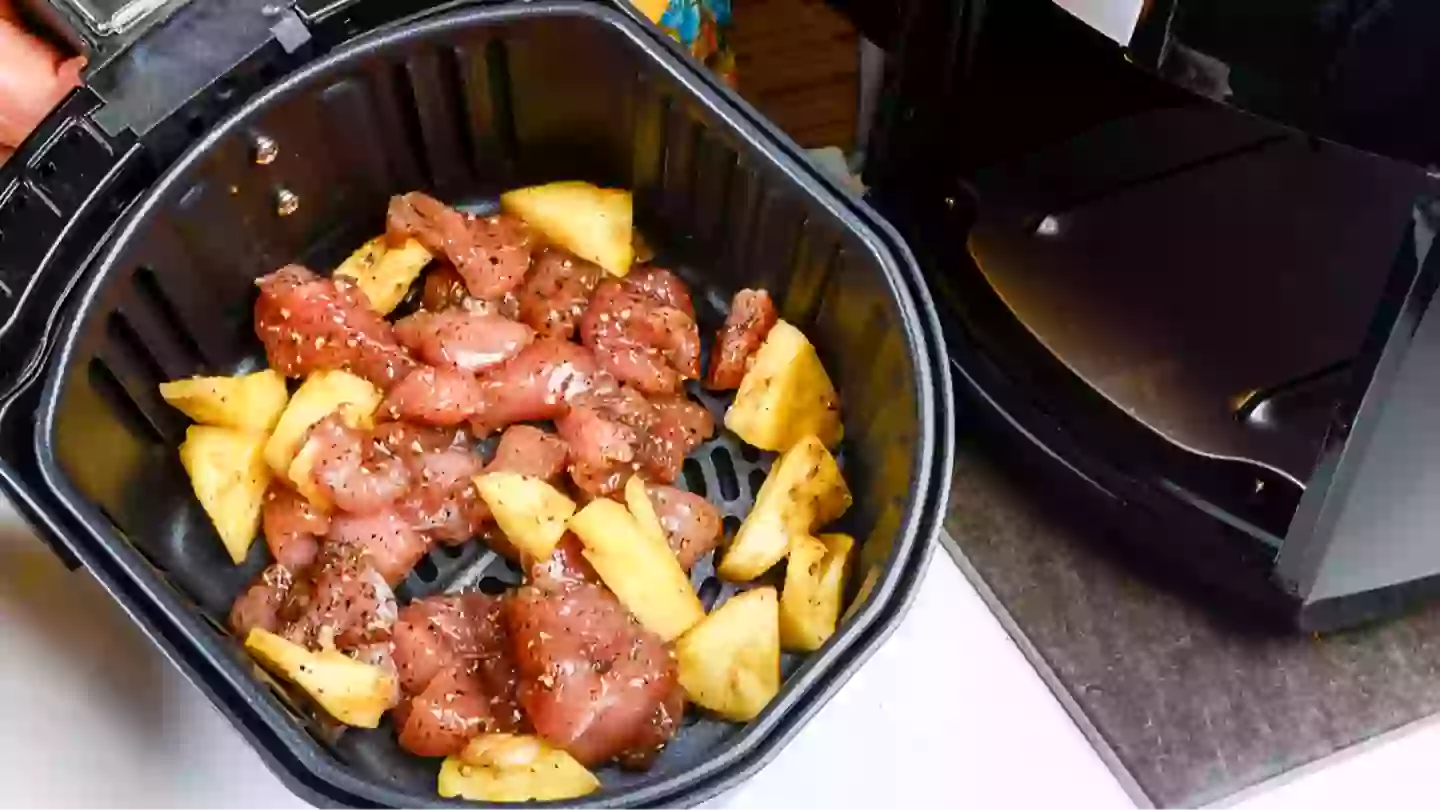
Air fryers have become a staple in the lives of everyday Americans, as well as people all around the world, so you'd think we'd know how to use them. Wouldn't you?
Well, apparently we've been using them wrong, according to an expert - or at least I have. For many consumers, the possibilities of the countertop cooker is endless... although they aren't.
Yes, you can't cook whole chicken because there simply isn't enough room to allow the hot air to circulate, and the middle will still be raw - unless your kitchen counter is packing a huge one.
Advert

There's also the obvious things like pasta and rice - because clearly you need to boil them, but fresh greens are also a no-go.
It's due to the density of the likes of spinach, lettuce and kale - which are all so light that they'll just be blown away in your convection oven, so it's best to avoid the mess.
Which nicely brings us on to the next issue deemed by experts to be incredibly important, with one of those being Dr Richard Anderson, who has some handy advice on how to clean your air fryer properly - and how often you should be cleaning it.
Anderson, who is the head of learning and development at High Speed Training, said (via The Daily Express): "It’s recommended that you give your air fryer a light clean after every use and a deeper clean every month, or every few uses if you regularly cook greasy foods.
Advert
"For a monthly deep clean, you’ll need to clean all the accessories and inside the appliance more thoroughly to remove burnt-on food, grease and odours.”
He continues: “Even though some air fryers are labelled as dishwasher-safe, dishwashers can strip the non-stick coating on the air fryer components.

"For stubborn, baked-on grease, try filling the tray or drawer with water, drop in a dishwasher tablet and leave to soak overnight. Then, simply rinse clean the next day."
Advert
It's incredibly important that you give your air fryer a good ole' clean as they contain polyfluoroalkyl substances (PFAS), which are a group of chemicals used in food packaging, toiletries, non-stick cookware, and carpets.
These chemicals don't 'break down easily in the body', according to the American Cancer Society, and can end up being present for a long time, with some research having since suggested that exposure to such chemicals can increase a person's risk of developing cancer.
However, that shouldn't be a problem unless your air fryer is damaged, or, in the words of Dr Karan Rajan, you plan on munching 'the lining of your air fryer' - which I hope isn't the case.
Topics: Food and Drink, Technology